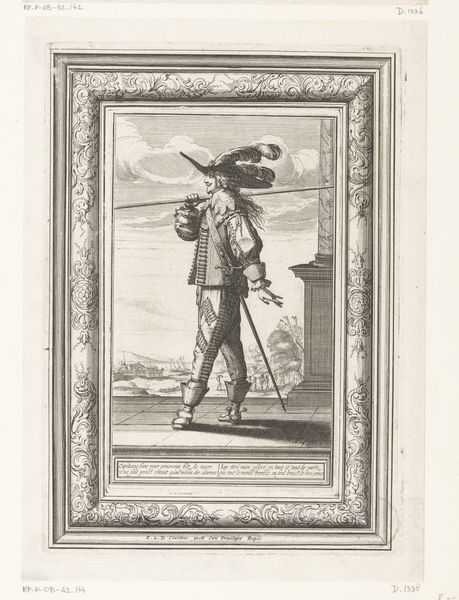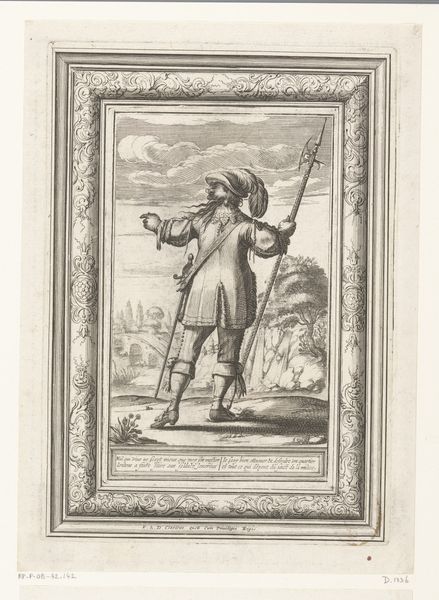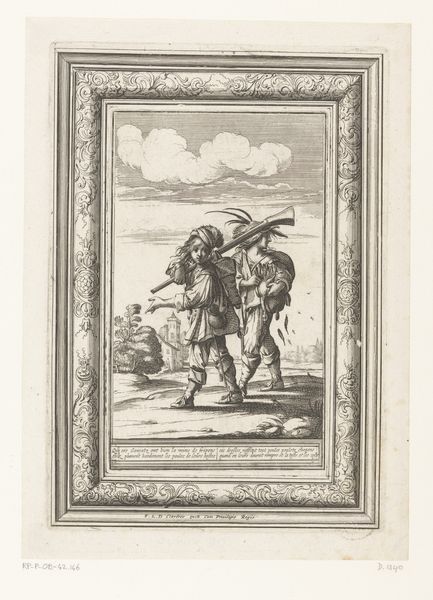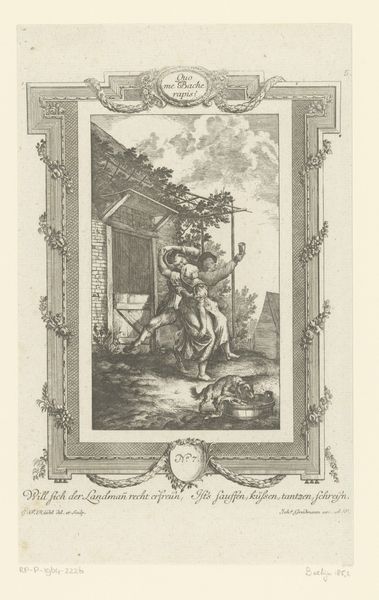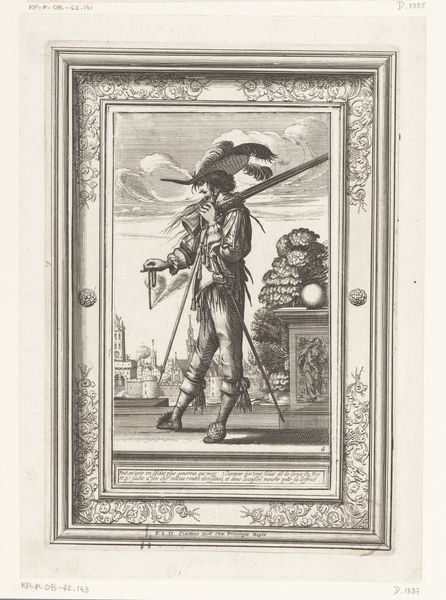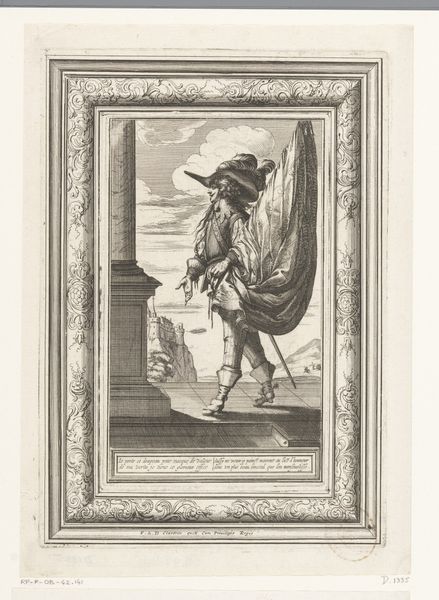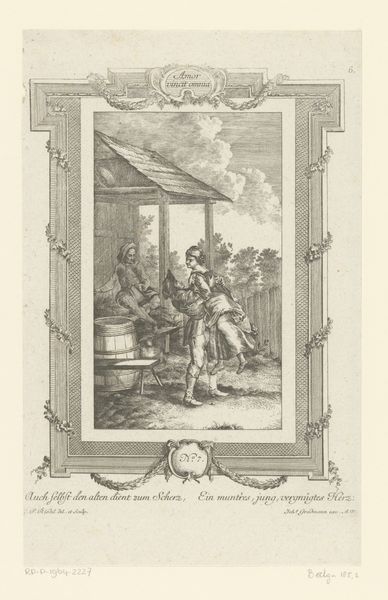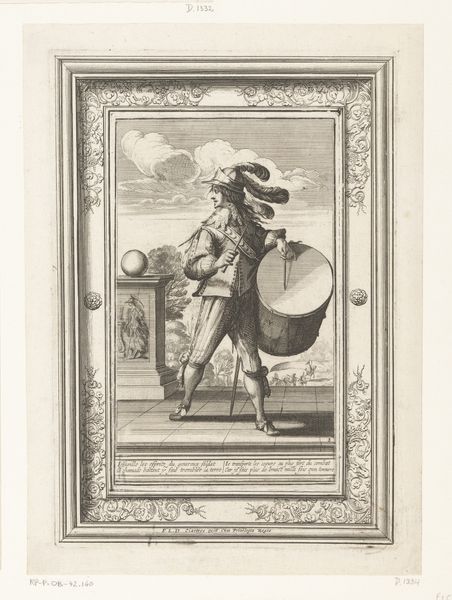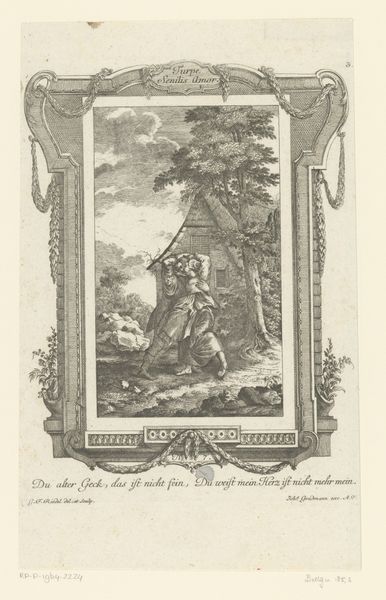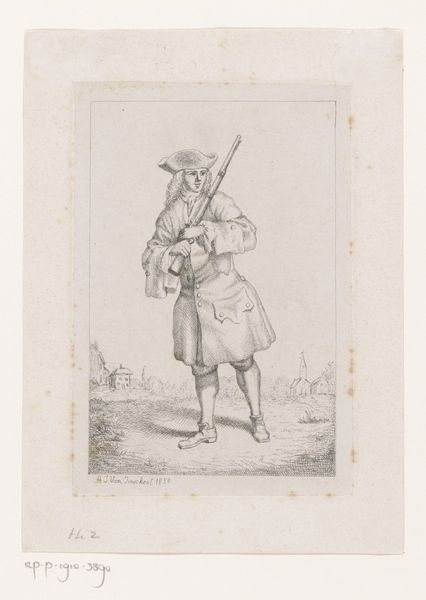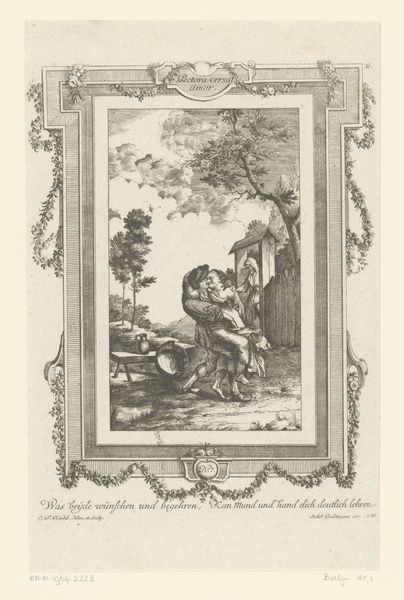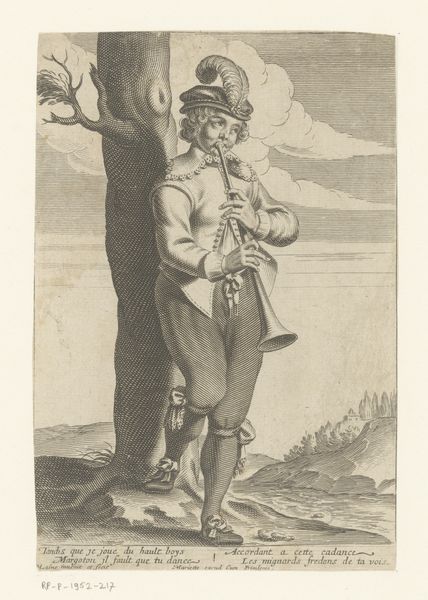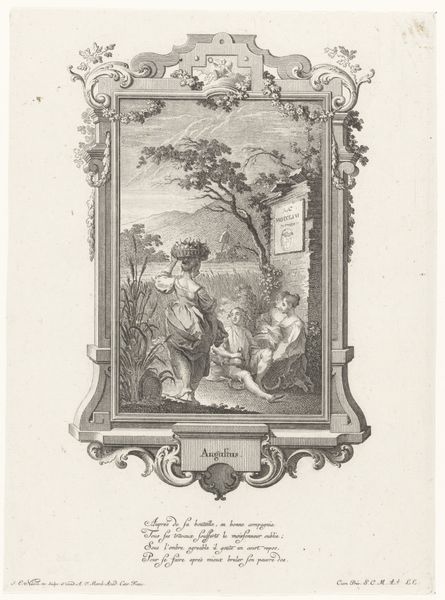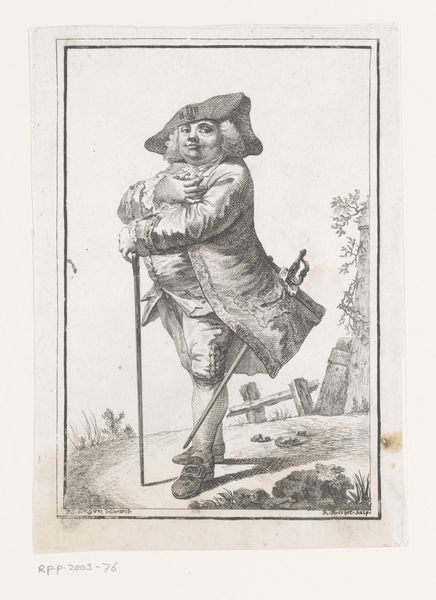
print, engraving
#
portrait
#
baroque
# print
#
figuration
#
line
#
genre-painting
#
engraving
Dimensions: height 181 mm, width 110 mm, height 245 mm, width 172 mm
Copyright: Rijks Museum: Open Domain
This engraving of a flute player dressed in the fashion of 1630 was created by Abraham Bosse, an artist known for his detailed depictions of contemporary life. Bosse was a master of the etching technique, using acid to bite lines into a copper plate. Notice the incredible detail in the figure's clothing and the surrounding landscape. The linear quality of the etching emphasizes the textures of fabrics, feathers, and even the musician's wispy mustache. Bosse's choice of etching allowed for the reproduction of his images, making them accessible to a wider audience. These prints weren’t luxury objects. Rather, they functioned as a kind of proto-fashion magazine, circulating information about style and taste. This print provides insights into the material culture and social practices of the 17th century, reminding us that even seemingly simple images are embedded in complex networks of labor, production, and consumption. It challenges the hierarchy between art and craft, revealing the cultural significance of printed images in early modern Europe.
Comments
No comments
Be the first to comment and join the conversation on the ultimate creative platform.
